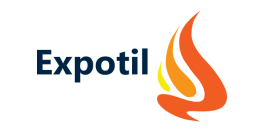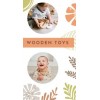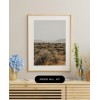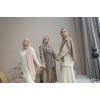
Cultivating Success in B2B Hijab Trade: A Comprehensive Guide
The global Islamic fashion market is flourishing, and hijabs represent a significant segment within this growth. Turkey, a leader in the textile industry, boasts a multitude of esteemed hijab manufacturers catering to the B2B (business-to-business) market. Here's a roadmap to navigate this dynamic landscape and establish thriving B2B hijab partnerships:
Cultivating Profitable B2B Hijab Partnerships in the Turkish Market
The global Islamic fashion industry is experiencing exponential growth, with hijabs representing a cornerstone of this expansion. Turkey, a textile powerhouse, boasts a multitude of esteemed hijab manufacturers catering specifically to the B2B (business-to-business) market. This comprehensive guide equips you with the necessary strategies to navigate this dynamic landscape and forge thriving B2B hijab partnerships.
Defining Your Business Needs:
Target Market Identification: Precisely define the demographics you intend to serve. Are you catering to high-end boutiques, budget-conscious mass retailers, or a specific style niche? A clear understanding of your target market will guide your search for B2B hijab manufacturers who specialize in styles and price points aligned with their needs.
Product Range and Quality Standards: Determine the specific types of hijabs your business requires. Look for manufacturers offering a diverse range encompassing classic staples, trendy designs, or a strategic blend of both. Prioritize quality by carefully considering factors like fabric type, stitching techniques, and finishing touches.
Minimum Order Quantity (MOQ) Considerations: MOQ refers to the minimum number of units a manufacturer requires per order. This can vary significantly. Carefully consider your budget, storage capacity, and projected sales volume to select a manufacturer whose MOQ aligns seamlessly with your specific needs.
Identifying Reliable B2B Partners:
Leveraging B2B Platforms: Utilize established B2B platforms like Alibaba or TradeKey to connect with a vast network of Turkish hijab manufacturers. These platforms offer advanced search functionalities that allow you to filter results based on location, product category, and MOQ.
Industry Directories as a Resource: Turkish textile associations such as the Turkish Garment Manufacturers' Association (TGSD) maintain comprehensive directories of member companies, including well-regarded hijab manufacturers. These directories can be a valuable resource for identifying reputable and reliable partners.
Trade Shows: Cultivating Direct Relationships: Attending textile trade shows held in Istanbul or other major Turkish cities is an exceptional way to connect with manufacturers directly. This provides you with the valuable opportunity to assess product quality firsthand, discuss customization options, and establish rapport with potential partners.
Negotiating a Mutually Beneficial Agreement:
Competitive Pricing and Payment Terms: Negotiate competitive pricing structures based on factors like order volume, material quality, and lead time (production time). Ensure clear communication regarding payment terms, including any required deposits and accepted payment methods.
Quality Control and Ethical Production: Discuss the manufacturer's quality control measures in detail. Ensure they comply with internationally recognized safety and ethical production standards. Certifications like OEKO-TEX or GOTS can indicate their commitment to responsible practices.
Customization Options for Differentiation: Explore the possibility of customization, such as private label branding or creating unique designs in collaboration with the manufacturer. This strategic approach can help you differentiate yourself from competitors in the B2B hijab market.
Lead Time and Logistics Management: Establish clear communication regarding lead times for production and delivery. Discuss logistics and associated costs to ensure a smooth and efficient supply chain management process.
Additional Considerations for Success:
Ethical Sourcing Practices: Many businesses prioritize ethical sourcing. Thoroughly research the manufacturer's labor practices and their commitment to fair wages and worker safety.
Sustainable Production Practices: The fashion industry has a significant environmental impact. Consider partnering with manufacturers who prioritize sustainable practices like using recycled materials or implementing water usage reduction strategies.
Open Communication and Transparency: Maintain open and transparent communication with your B2B hijab partner. Regular communication fosters trust and ensures a smooth working relationship that lays the foundation for long-term success.
Conclusion:
By meticulously understanding your business needs, identifying suitable B2B partners, and fostering clear communication, you can establish successful and profitable B2B hijab partnerships within the thriving Turkish market. Remember, a strong partnership built on trust, quality, and shared values is key to achieving long-term success in the ever-evolving world of Islamic fashion.
Understanding Your Requirements:
Target Audience: Identify the demographics you aim to serve. Are you targeting high-end boutiques, budget-conscious retailers, or a specific style niche? Understanding your target market will guide your search for B2B hijab manufacturers who specialize in those styles and price points.
Product Range and Quality: Determine the types of hijabs you require. Look for manufacturers offering classic styles, trendy designs, or a combination of both. Prioritize quality by considering factors like fabric type, stitching techniques, and finishing touches.
Minimum Order Quantity (MOQ): MOQ refers to the minimum number of units a manufacturer requires per order. This can vary significantly. Consider your budget, storage capacity, and projected sales volume when selecting a manufacturer whose MOQ aligns with your needs.
Identifying Potential Partners:
B2B Platforms: Utilize online B2B platforms like Alibaba ([invalid URL removed]) or TradeKey (https://www.tradekey.com/) to connect with Turkish hijab manufacturers. These platforms offer advanced search functionalities to filter your results based on location, product category, and MOQ.
Industry Directories: Turkish textile associations like the Turkish Garment Manufacturers' Association (TGSD) ([https://tgsd.org.tr/en/about/]) maintain directories of member companies, including hijab manufacturers. These directories can be a valuable resource for finding reputable partners.
Trade Shows: Attending textile trade shows in Istanbul or other major Turkish cities is an excellent way to meet manufacturers directly. This allows you to assess product quality firsthand, discuss customization options, and establish rapport with potential partners.
Negotiating a Successful Partnership:
Pricing and Payment Terms: Negotiate competitive pricing based on factors like order volume, material quality, and lead time (production time). Be clear about payment terms, including any required deposits or payment methods accepted.
Quality Control and Certifications: Discuss the manufacturer's quality control measures and ensure they comply with international safety and ethical production standards. Certificates like OEKO-TEX or GOTS can indicate commitment to responsible production practices.
Customization Options: Explore the possibility of customization, such as private label branding or creating unique designs. This can help you differentiate yourself from competitors in the B2B hijab market.
Lead Time and Logistics: Establish clear communication regarding lead times for production and delivery. Discuss logistics and associated costs to ensure a smooth and efficient supply chain.
Additional Considerations:
Ethical Sourcing: Many businesses prioritize ethical sourcing. Research the manufacturer's labor practices and commitment to fair wages and worker safety.
Sustainability: The fashion industry has a significant environmental impact. Consider partnering with manufacturers who prioritize sustainable practices like using recycled materials or reducing water usage.
Communication and Transparency: Maintain open communication with your B2B hijab partner. Regular communication fosters trust and ensures a smooth working relationship.
Conclusion:
By understanding your needs, identifying suitable partners, and fostering clear communication, you can establish successful B2B hijab partnerships within the thriving Turkish market. Remember, a strong partnership built on trust, quality, and shared values is key to long-term success in the ever-evolving world of Islamic fashion.









40 Comment(s)
1
1
먹튀검증 ensures a safe and secure gambling experience.
Can't believe I can watch my favorite sports live without paying, thanks 스포츠무료중계!
I love that 다크걸 always brings something new to the table.
I'm always excited to see what new webtoons are up on 비툰!
I’m always impressed by how well 다크걸 curates its content. Very engaging!
So many webtoons to choose from on 뉴토끼. Definitely a site worth bookmarking!
With 폰테크, mobile devices have become much more than just phones.
With 폰테크, healthcare apps on smartphones are becoming more intuitive.
Want a safe and exciting gaming experience? Try this 슬롯 사이트 추천.
뉴토끼 is a must-visit site for webtoon lovers.
I'm always discovering new favorites on 블랙툰.
가라오케 주대 makes karaoke even more exciting and social.
Never miss a show with 블랙티비주소.
Explore the limits of music mixing with Sprunki Game! Each character brings a unique vibe to your creation
I enjoy what you guys are usually up too. Such clever work and coverage! Keep up the awesome works guys I've included you guys to my blogroll.
I simply couldn't leave your website prior to suggesting that I extremely enjoyed the usual info a person provide on your guests? Is gonna be again steadily in order to inspect new posts
I could not refrain from commenting. Very well written!
Everyone loves what you guys are up too. This sort of clever work and coverage! Keep up the amazing works guys I've added you guys to our blogroll.
I visited several sites however the audio quality for audio songs current at this web site is in fact superb.
I am sure this piece of writing has touched all the internet users, its really really good post on building up new blog.
It's very straightforward to find out any matter on web as compared to textbooks, as I found this post at this site.
Way cool! Some very valid points! I appreciate you penning this write-up and also the rest of the website is also very good.
I've learn a few just right stuff here. Certainly price bookmarking for revisiting. I wonder how a lot effort you place to make the sort of excellent informative web site.
Hey, I think your website might be having browser compatibility issues. When I look at your blog site in Ie, it looks fine but when opening in Internet Explorer, it has some overlapping. I just wanted to give you a quick heads up! Other then that, superb blog!
I like looking through a post that can make people think. Also, thanks for allowing me to comment!
Heya i'm for the first time here. I found this board and I find It truly helpful & it helped me out much. I am hoping to give something back and aid others like you helped me.
I love what you guys are usually up too. Such clever work and reporting! Keep up the wonderful works guys I've added you guys to our blogroll.
I am sure this piece of writing has touched all the internet users, its really really good piece of writing on building up new webpage.
Ahaa, its nice conversation concerning this article here at this webpage, I have read all that, so now me also commenting here.
I wanted to thank you for this great read!! I definitely enjoyed every little bit of it. I have got you saved as a favorite to check out new stuff you
I simply could not depart your site before suggesting that I extremely loved the usual information a person provide to your visitors? Is gonna be back continuously to check out new posts
I'm curious to find out what blog system you happen to be utilizing? I'm experiencing some minor security problems with my latest blog and I'd like to find something more safeguarded. Do you have any solutions?
Hi there, You have done a fantastic job. I'll certainly digg it and personally suggest to my friends. I am sure they will be benefited from this website.
I wanted to thank you for this very good read!! I absolutely loved every little bit of it. I've got you book-marked to check out new stuff you
It's very easy to find out any topic on web as compared to books, as I found this piece of writing at this website.
I will right away grasp your rss feed as I can not in finding your e-mail subscription link or e-newsletter service. Do you’ve any? Kindly allow me understand so that I may just subscribe. Thanks.
Wow, this post is good, my sister is analyzing these things, so I am going to tell her.
I am sure this article has touched all the internet users, its really really pleasant article on building up new blog.
Hey very nice site!! Man .. Excellent .. Superb .. I will bookmark your blog and take the feeds additionally? I am satisfied to seek out so many helpful information right here within the post, we need develop more strategies in this regard, thank you for sharing. . . . . .
Leave a Comment